第41章 BY THE RIVER(3)
Lydia Maria Child's "Juvenile Miscellany,"which had found its way to us some years before,--a most delightful guest,and,Ithink,the first magazine prepared for American children,who have had so many since then.(I have always been glad that I knew that sweet woman with the child's heart and the poet's soul,in her later years,and could tell her how happy she had helped to make my childhood.)Our little sheet was called "The Diving Bell,"probably from the sea-associations of the name.We kept our secrets of authorship very close from everybody except the editor,who had to decipher the handwriting and copy the pieces.
It was,indeed,an important part of the fun to guess who wrote particular pieces.After a little while,however,our mannerisms betrayed us.One of my cousins was known to be the chief story-teller,and I was recognized as the leading rhymer among the younger contributors;the editor-sister excelling in her versifying,as she did in almost everything.
It was a cluster of very conscious-looking little girls that assembled one evening in the attic room,chosen on account of its remoteness from intruders (for we did not admit even the family as a public,the writers themselves were the only audience),to listen to the reading of our first paper.We took Saturday evening,because that was longer than the other workday evenings,the mills being closed earlier.Such guessing and wondering and admiring as we had!But nobody would acknowledge her own work,for that would have spoiled the pleasure.Only there were certain wise hints and maxims that we knew never came from any juvenile head among us,and those we set down as "editorials."Some of the stories contained rather remarkable incidents.One,written to illustrate a little girl's habit of carelessness about her own special belongings,told of her rising one morning,and after hunting around for her shoes half an hour or so,finding them in the book-case,where she had accidentally locked them up the night before!
To convince myself that I could write something besides rhymes,Ihad attempted an essay of half a column on a very extensive subject,"MIND."It began loftily:-"What a noble and beautiful thing is mind!"and it went on in the same high-flown strain to no particular end.But the editor praised it,after having declined the verdict of the audience that she was its author;and I felt sufficiently flattered by both judgments.
I wrote more rhymes than anything else,because they came more easily.But I always felt that the ability to write good prose was far more desirable,and it seems so to me still.I will give my little girl readers a single specimen of my twelve-year-old "Diving Bell"verses,though I feel as if I ought to apologize even for that.It is on a common subject,"Life like a Rose":--"Childhood's like a tender bud That's scarce been formed an hour,But which erelong will doubtless be A bright and lovely flower.
"And youth is like a full-blown rose Which has not known decay;But which must soon,alas!too soon!
Wither and fade away.
"And age is like a withered rose,That bends beneath the blast;But though its beauty all is gone,Its fragrance yet may last."This,and other verses that I wrote then,serve to illustrate the child's usual inclination to look forward meditatively,rather than to think and write of the simple things that belong to children.
Our small venture set some of us imagining what larger possibilities might be before us in the far future.We talked over the things we should like to do when we should be women out in the active world;and the author of the shoe-story horrified us by declaring that she meant to be distinguished when she grew up for something,even if it was for something bad!She did go so far in a bad way as to plagiarize a long poem in a subsequent number of the "Diving Bell"but the editor found her out,and we all thought that a reproof from Emilie was sufficent punishment.
I do not know whether it was fortunate or unfortunate for me that I had not,by nature,what is called literary ambition.I knew that I had a knack at rhyming,and I knew that I enjoyed nothing better than to try to put thoughts and words together,in any way.But I did it for the pleasure of rhyming and writing,indifferent as to what might come of it.For any one who could take hold of every-day,practical work,and carry it on successfully,I had a profound respect.To be what is called "capable"seemed to me better worth while than merely to have a taste or for writing,perhaps because I was conscious of my deficiencies in the former respect.But certainly the world needs deeds more than it needs words.I should never have been willing to be only a writer,without using my hands to some good purpose besides.
My sister,however,told me that here was a talent which I had no right to neglect,and which I ought to make the most of.Ibelieved in her;I thought she understood me better than Iunderstood myself;and it was a comfort to be assured that my scribbling was not wholly a waste of time.So I used pencil and paper in every spare minute I could find.Our little home-journal went bravely on through twelve numbers.Its yellow manuscript pages occasionally meet my eyes when I am rummaging among my old papers,with the half-conscious look of a waif that knows it has no right to its escape from the waters of oblivion.